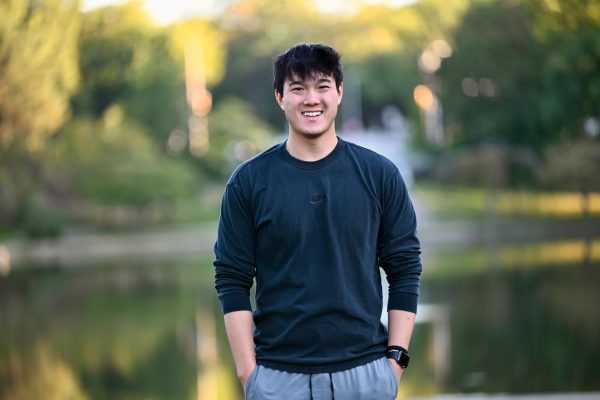Last semester, Case Western Reserve University suspended all admissions to their Integrated Graduate Studies (IGS) program due to changes made by the Ohio Department of Higher Education (ODHE).
In the past, the IGS program allowed students to complete a master’s degree alongside their undergraduate coursework. As a result, students would not have to take the Graduate Record Exam (GRE) to matriculate into graduate school, and they could take classes that counted for both their undergraduate and graduate school requirements. However, this process of “double-counting” course credits is now more strictly regulated by the state—as they stand, many IGS programs are not compliant.
These statewide changes to graduate study were first proposed in 2019, yet CWRU affirms that the new rules only came into effect last year. In comments to The Observer, the university noted that “[a]dmissions to the university’s Integrated Graduate Studies program have been suspended in the wake of action by Ohio Department of Higher Education regarding the credits counted simultaneously for both a bachelor’s degree and master’s degree.”
Minutes from several graduate student councils, including one at Ohio University, mention that prior to 2019 there were inconsistencies in how credits were double-counted—some universities allowed for half of the graduate credits to be transferred to undergraduate requirements, while others accepted none.
According to Jeff Robinson, director of communications for the ODHE, they were “asked by Ohio campuses how the [institutions with accelerated bachelor’s-master’s programs] should be treated within the guidelines. This clarification was provided in 2019 after discussions with the Chancellor’s Council of Graduate Studies (CCGS) and the Higher Learning Commission.” Under the newly instated regulations, only nine credit hours can count between the two degrees, with a combined master’s and bachelor’s program requiring at least 141 credit hours total.
Undergraduate Student Government’s Vice President for Academic Affairs Hayley Latta said that “the BS/MS programs follow the current guidelines for the state, which only allow [nine] hours to be double-counted across two degrees. The BA/MA programs generally count more than these [nine] hours, which violates the Ohio Department of Education’s policy.” As a result, undergraduates intending to apply must wait for CWRU to finalize a new policy before starting their graduate education, but current IGS students are unaffected.
It is important to note these changes apply to IGS programs in every university—meaning that none of the IGS programs are currently accepting applications—but they will not impact students seeking admission into CWRU’s Pre-Professional Scholars Programs.
CWRU states that the next steps for IGS depend on decisions made by the Faculty Senate’s graduate and undergraduate committees. The university reported that “once the committees complete their work to develop a recommended policy, it will be recommended to the full Faculty Senate for its review.”
“I have been informed about the recent status of IGS through our discussions in [the Faculty Senate Committee for Undergraduate Education], and to my knowledge, USG has not been told about CWRU’s final decision, since the university is still trying to understand how/whether to allow students to enter graduate programs early,” Latta said about the progress of these discussions.
Dr. Aviva Rothman, a Faculty Senate member, affirms Latta’s statements saying, “[they] don’t know when there will be a final decision, but various Faculty Senate groups will be considering new guidelines for IGS in their November meetings.” She also elaborates on how current undergraduates will be affected, stating, “[t]here are ongoing discussions about whether existing undergraduate students can possibly be grandfathered [into] a version of IGS that allows for more overlap, but this is still undetermined.” Regardless of the outcome, Rothman believes “there will still be a system in place akin to IGS that will allow undergraduates the possibility of accelerated graduate study.”
While CWRU students are left awaiting a final policy, students from surrounding universities are experiencing little to no change to their academic programs. Representatives from two private universities, Ohio Dominican University and the University of Dayton, confirmed that their accelerated master’s programs are still running and accepting applications as usual. Various public universities, including the University of Akron, have also confirmed that their programs are still recruiting students, though accelerated master’s programs for public universities are enshrined in Ohio law.
Awaiting the new IGS policy, Dr. Leah Jeunnette, director of CWRU’s master’s program in bioethics and medical humanities, is hopeful that changes “will make the IGS program stronger for all students at CWRU.”
“As the MA in Bioethics and Medical Humanities program is one of the largest Integrated Graduate Studies programs at Case Western Reserve University, we are keeping a close eye on the proposed changes to the IGS program. The IGS students who join our program each fall are some of the best that CWRU has to offer and make our MA program more diverse, more interdisciplinary, and more dynamic,” Dr. Jeunnette said, describing how the changes are impacting her program.
For CWRU students, the issue of IGS suspension is a waiting game. We can only hope in the coming months that the Faculty Senate will come to a final decision and students will once again be able to enroll in and take advantage of these dual degree opportunities.






